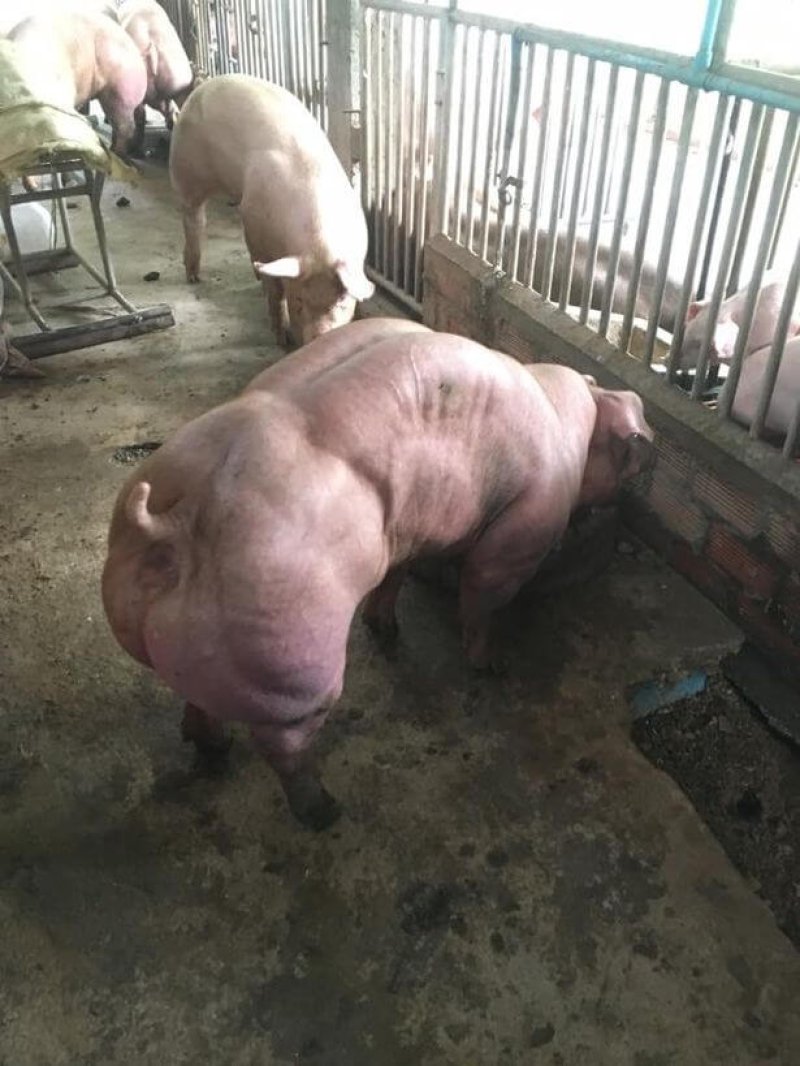Pigs are being bred on a farm in Cambodia, and their enormous size and hulking muscles are raising alarm. The shocking sight of these “double-muscle” pigs—with enlarged buttocks and generally outsize physique—have stirred outrage, particularly because video footage of the animals appears to show them walking abnormally.
…
While PETA has claimed that these pigs are genetically altered, we don’t know that for sure. They could simply be bred to be buff; we can see from the pictures on the farm’s Facebook page that there is a spectrum of beefiness among them, and that lack of uniformity means genetic alteration is not at play.
We do know that in 2015 scientists at Seoul National University in Korea genetically modified pigs to have double-muscles. Researchers hoped to produce pigs that had more and leaner meat on them, and the Journal of Animal Breeding and Genetics published a study saying that altering the myostatin gene can “increase selling profits for animal producers.” The pigs in Cambodia could be of the same lineage or technique.
[Editor’s: No GMO pigs have been approved or released in any country.]This particular gene disruption is relatively minor. The myostatin gene typically regulates muscle production. Without this gene keeping muscle tissue in check, animals will reach Hulk-like proportions.
The GLP aggregated and excerpted this article to reflect the diversity of news, opinion and analysis. Read full, original post: Hulk-Like Double-Muscle Mutant Pigs Being Bred on Farms in Cambodia































